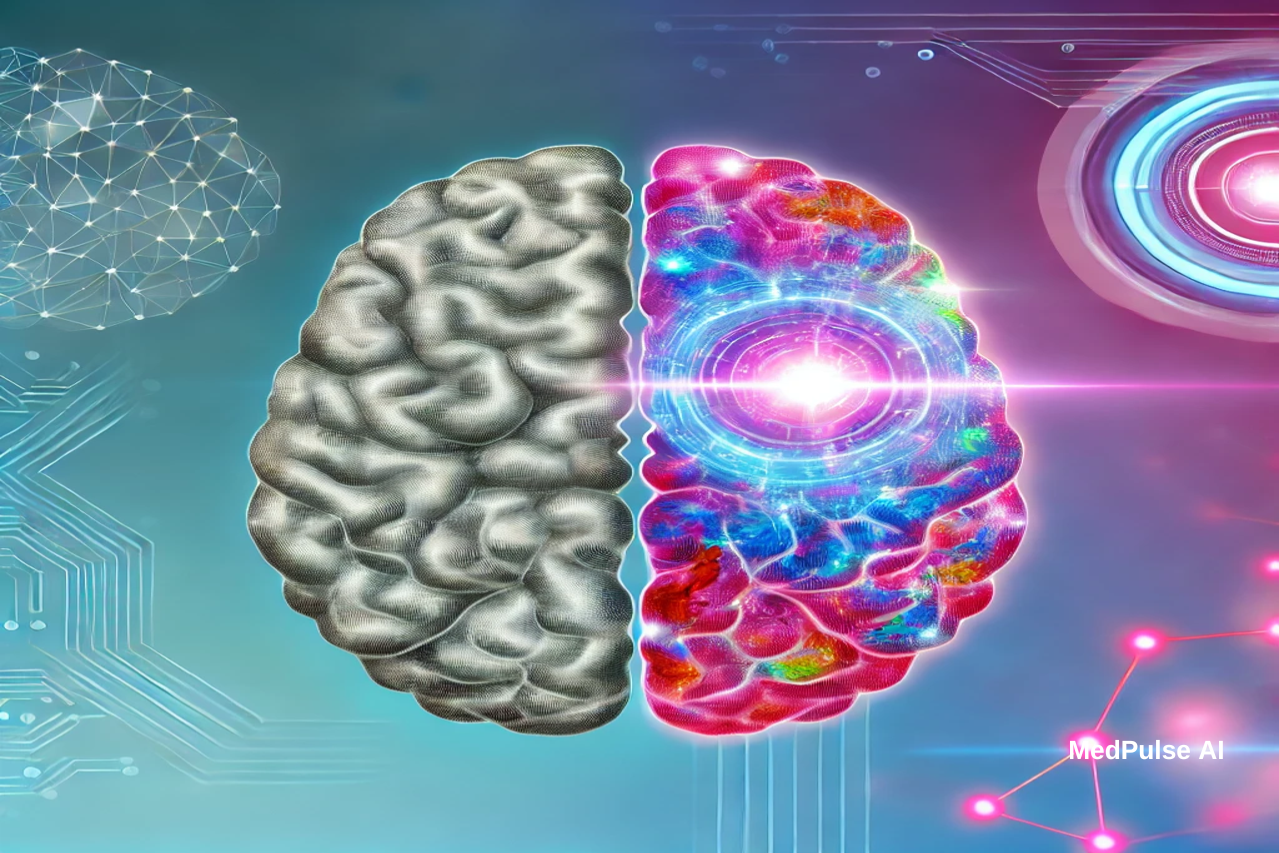In April 2024, the Human Immunome Project (HIP) unveiled a transformative Scientific Plan aimed at generating the world’s most extensive and diverse immunological dataset. This endeavor will not only elevate our understanding of the immune system but also reshape how we approach immunology in healthcare, enabling breakthroughs in personalized medicine, vaccine development, and disease prevention.
The initiative leverages recent advancements in immune monitoring and artificial intelligence to process the vast amounts of data required to model the immune system. By understanding how the immune system varies across individuals, HIP aims to develop targeted approaches to address global health challenges, including maternal health, aging, cognitive decline, and disease evolution.
The roadmap is ambitious: HIP’s plan involves establishing a network of global study sites designed to capture the full spectrum of human diversity across age, ethnicity, geography, sex, and socioeconomic status. Data collection will occur in a phased approach, beginning with up to 10 pilot sites and expanding to more than 100 locations worldwide. This comprehensive dataset will serve as a foundational resource for medical research, fueling advancements that benefit health outcomes on a global scale.
Why a Diverse Immunological Dataset Matters
The immune system is highly complex and varies greatly among individuals, influenced by factors such as genetics, environment, lifestyle, and health history. To date, much of immunology research has focused on limited population segments, often failing to capture the full breadth of immune responses across diverse groups.
Diverse datasets are crucial in AI-driven healthcare because they ensure that AI models are built on inclusive, representative information, minimizing biases and improving reliability across different populations. When AI is trained on data that reflects a wide range of demographics—such as age, gender, ethnicity, geographic location, and socioeconomic status—it becomes better equipped to make accurate predictions and decisions that are equitable and relevant for all patient groups.
This inclusivity is essential for addressing health disparities, as it reduces the risk of biased outcomes that disproportionately impact underserved populations. Furthermore, a diverse dataset supports the ethical imperative of fairness in AI applications, fostering trust among patients and clinicians who rely on AI for diagnostics, treatments, and healthcare insights. By training on diverse data, AI in healthcare can deliver more just, effective, and personalized care, ensuring that ethical considerations are built into the foundation of AI-powered healthcare solutions.
The HIP Scientific Plan recognizes that building a global, inclusive dataset is essential for:
- Personalized Medicine: A comprehensive understanding of the immune system enables treatments tailored to individuals’ unique immune profiles.
- Global Health Solutions: Insights from diverse immune data can aid in creating universal treatments and vaccines, reducing health disparities.
- Prevention and Early Detection: Patterns in immune data can help identify disease risk factors unique to specific populations, aiding in prevention strategies.
By bringing together diverse immunological data, HIP aims to build a global blueprint of immune responses, creating a robust foundation for future research and therapeutic innovation.

Several studies have highlighted significant diversity issues in existing datasets:
- Underrepresentation of Ethnic Minorities: A 2020 study found that over 70% of data used in genome-wide association studies came from individuals of European descent, leading to a lack of representation for other ethnic groups. National Science Foundation
- Gender Imbalance: Research indicates that women are underrepresented in clinical trials, with one analysis showing that only 41% of participants were female, potentially skewing treatment efficacy and safety data.
- Age Distribution Skew: Older adults are often underrepresented in clinical research, despite being significant consumers of healthcare services. A study revealed that individuals aged 65 and older comprised only 34% of clinical trial participants, even though they represent a larger portion of the patient population.
- Geographic Location Bias: Data from high-income countries dominate many datasets, with low- and middle-income countries underrepresented. For instance, 80% of participants in certain medical studies were from North America and Europe, limiting the applicability of findings globally.
- Socioeconomic Status Disparity: Individuals from lower socioeconomic backgrounds are less likely to be included in research studies, leading to data that may not fully capture the health challenges faced by these populations.
- Disabilities & Chronic Conditions: People with disabilities or chronic conditions are often excluded from clinical trials, resulting in a lack of data on how treatments affect these groups.
- Lack of Cultural Context: Many datasets fail to consider cultural factors that influence health behaviors and outcomes, which can lead to interventions that are less effective across different cultural settings.
Key Highlights of HIP’s Scientific Plan
HIP’s Scientific Plan is structured in phases, beginning with a pilot phase and expanding to establish an extensive global network of study sites. Here are some of the plan’s major components:
- Phased Data Collection Approach
- Pilot Phase: The initial phase will commence with 10 study sites strategically located in diverse regions. These sites will serve as trial locations, refining HIP’s data collection methodologies and ensuring logistical efficacy.
- Expansion Phase: Based on findings from the pilot, HIP will gradually increase the number of study locations, with plans to reach more than 100 sites worldwide. The expansion phase is designed to cover a broad demographic, capturing immune data that reflects the varied environmental and genetic factors influencing immunity across different populations.
- Comprehensive Data Collection Across Demographics
- HIP’s Scientific Plan ensures representation across a range of demographics. By focusing on diversity in age, ethnicity, geography, sex, and socioeconomic status, HIP aims to capture how the immune system varies among people of all backgrounds, providing a truly comprehensive picture of human immunity.
- Cutting-Edge Technology and AI Integration
- The data collection will rely on advanced immune monitoring technologies, including next-generation sequencing, high-throughput immune assays, and single-cell RNA sequencing. This cutting-edge technology will generate precise data, further analyzed by AI models trained to uncover patterns, correlations, and insights that would be impossible to detect through traditional research methods alone.
- Artificial intelligence (AI) will play a pivotal role in processing the enormous volume of data generated. Machine learning algorithms will identify and predict immune responses to diseases, medications, and vaccines, laying the groundwork for more precise and effective healthcare solutions.
- Collaboration with Local Communities and Health Systems
- HIP is committed to collaborating with local healthcare systems, research institutions, and communities in each location. This collaboration ensures that the data collected is relevant, ethical, and accessible, benefiting both the participating communities and the broader global health landscape.
- Transparent and Ethical Data Governance
- The project places a high priority on ethical considerations and transparency. Data collected will be anonymized, securely stored, and governed by rigorous data protection standards. HIP aims to set a benchmark in data privacy and governance, fostering trust and inclusivity in the scientific community and among the general public.
AI will play a crucial role in the Human Immunome Project (HIP) by providing the advanced analytical power necessary to process, interpret, and model the massive and complex immunological datasets generated. Here’s a breakdown of how AI will contribute to HIP’s mission of building the world’s largest and most diverse immunological dataset:
1. Data Processing and Integration
- The HIP aims to collect immunological data from a vast range of sources and demographics globally, encompassing age, ethnicity, geographic location, and more. AI-driven algorithms, such as machine learning and natural language processing (NLP), will help manage and organize this data efficiently, ensuring it remains usable and accessible to researchers.
- AI will also automate data cleaning and preprocessing, which is crucial given the expected scale of HIP’s data. This ensures the data used for research is accurate and reliable, enhancing the quality of downstream analyses.
2. Pattern Recognition and Biomarker Identification
- AI’s ability to identify complex patterns in data is central to the HIP’s goals. Machine learning algorithms, particularly deep learning, can uncover patterns within immune cell activity, genetic expressions, and response markers. By doing so, AI will help identify biomarkers—specific genes or molecules indicative of immune system activity—related to diseases, therapies, or demographic factors.
- This pattern recognition capability can lead to breakthroughs in understanding disease mechanisms, immune responses, and patient-specific factors influencing health outcomes.
3. Predictive Modeling for Personalized Medicine
- Predictive modeling is one of AI’s strongest applications in healthcare. In the HIP, AI models will help simulate how different immune profiles might respond to treatments, drugs, or pathogens. This will enable the project to predict disease progression, therapy outcomes, and individual patient responses.
- Such predictive modeling will empower healthcare providers to develop personalized treatments, where therapies are tailored to a person’s unique immune profile, minimizing side effects and maximizing efficacy.
4. Simulation and Digital Twins of the Immune System
- AI will assist in creating digital twins of the immune system, virtual models that simulate the behavior of an individual’s immune responses. These twins can predict how a person’s immune system will react to different diseases, treatments, or lifestyle changes, providing a safe, cost-effective testing ground for researchers and clinicians.
- Digital twins, powered by AI’s ability to analyze large datasets in real time, will be instrumental in creating proactive healthcare plans and understanding immune responses at a highly individualized level.
5. Accelerated Vaccine and Drug Development
- HIP’s data on immune system variations across global populations can be analyzed by AI to guide the development of more effective vaccines and drugs. By modeling how different immune profiles respond to pathogens, AI can help identify optimal vaccine formulations or drug targets.
- Machine learning algorithms can also simulate viral mutations or disease evolution, enabling researchers to develop vaccines that remain effective over time, especially crucial for rapidly evolving viruses like influenza and COVID-19.
6. Advancing Global Health Equity
- AI will enable HIP to analyze data from underrepresented populations, promoting a more inclusive approach to immunology research. By ensuring diversity in data and generating insights relevant to various demographic groups, AI can help develop treatments and preventive measures that address global health disparities.
- AI tools can provide a deeper understanding of immune responses across different demographics, allowing healthcare solutions to be more inclusive and accessible worldwide.
7. Continuous Learning and Adaptation
- AI can evolve with the data, meaning that as HIP expands and collects more information, AI algorithms will continue to learn and improve their accuracy. This adaptability ensures that the insights generated remain up-to-date, relevant, and capable of addressing emerging health challenges.
- AI’s continuous learning ability supports HIP’s long-term goal of creating a dynamic, real-time immunological dataset that researchers can use to respond swiftly to new diseases or health trends.
8. Data Visualization and Interpretation for Clinicians and Researchers
- Large datasets are only useful if they can be understood. AI-driven data visualization tools will play a key role in transforming HIP’s data into intuitive, accessible insights for clinicians and researchers. By creating visual representations, dashboards, or trend analyses, AI will make it easier for healthcare professionals to interpret immune data and apply it in clinical settings.
- This visualization capability will also support educational outreach, helping the public and policymakers understand immune health in more accessible terms.
Potential Outcomes and Applications of the HIP Scientific Plan
The dataset generated by HIP’s initiative will provide insights into immune system functions on an unprecedented scale, enabling breakthroughs in several areas:
- Precision Medicine and Personalized Treatments: By identifying immune response patterns, researchers can develop treatments tailored to each individual’s profile, improving efficacy and reducing side effects.
- Enhanced Vaccine Development: AI-powered analysis of HIP’s data can inform vaccine design adaptable to viral mutations, making them more effective against emerging diseases.
- Early Detection and Preventive Care: Immune data patterns can highlight early disease markers, allowing for preventive interventions and improving patient outcomes.
- Global Health Impact and Reduced Health Disparities: By representing diverse populations, HIP’s dataset empowers policymakers and health officials to address immune-related health disparities within various demographic groups.
- Understanding and Managing Autoimmune Diseases: HIP’s comprehensive data can reveal unknown factors contributing to autoimmune diseases, leading to more effective treatments and preventive strategies.
The Human Immunome Project’s ambitious goals hinge on AI’s unparalleled capacity to analyze, interpret, and model vast amounts of immunological data. Through data processing, predictive modeling, digital twin creation, and accelerated drug development, AI will help unlock insights into the immune system that have the potential to revolutionize personalized medicine, improve vaccine efficacy, and address global health disparities. AI not only amplifies HIP’s reach and effectiveness but also brings us closer to a world where healthcare solutions are tailored to the unique immunological needs of every individual.
Are you interested in how AI is changing healthcare? Subscribe to our newsletter, “PulsePoint,” for updates, insights, and trends on AI innovations in healthcare.




